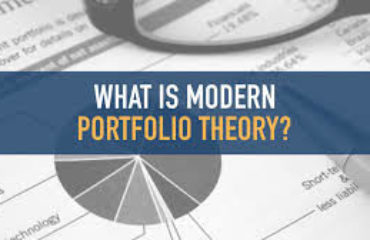There are many brilliant books on stock picking, from simple beginners’ guides to classic textbooks like Ben Graham’s Security Analysis and The Intelligent Investor. I could find only one credible book on mutual funds: John Bogle’s Common Sense on Mutual Funds.
Bogle’s advice? Investors should put their money in index funds. A number of finance luminaries — Warren Buffett, Charles D. Ellis, and David Swensen, among them — also recommend sticking to index funds. If they are all correct, then there would seem to be little need for funds research.
The question is: Does their advice apply to all markets all the time? And if it doesn’t, why is there a such a dearth of credible research on mutual funds? Are the experts’ recommendations more a function of the difficulty of picking funds rather than a fund’s inability to outperform?
Without wading into the active vs. passive debate, I want to examine why one firm dominates retail mutual fund research globally. By my count, there are at least three reasons why retail investors do not have access to more options:
- Selecting funds is easier said than done.
- The restricted access to information required for fund selection prevents a more vibrant funds research market from emerging.
- The research industry’s business model is difficult
How hard is it to pick funds anyway?
Running a funds research business is a huge commitment. There are more funds than stocks in some markets, with little overlap between retail and institutional funds. And with global capital flows, global capability is a necessity.
While some fund managers blame research houses and consultants for their own short-term mentality, the more thoughtful among them agree that it is difficult to choose among fund managers who all sound pretty good. The fact is, just as there isn’t one right way to pick stocks, there isn’t one right way to pick funds. One has to decide whether to use a quantitative or qualitative approach.
Most ratings available to retail investors rely on “hard facts” like track record — essentially permutations of past performance — and snapshots of portfolios to pick their relevant funds. Morningstar’s star ratings are an example.
The irony is when regulators insist on such “objective” analysis — but also require mutual funds to include a disclaimer on all communications reminding investors that “past performance is no guarantee of future results.” Even Morningstar seems to have admitted that its star ratings are not enough. Using a process similar to institutional consultants, Morningstar now also offers qualitative analyst ratings to complement their quantitative star ratings.
I believe the quantitative vs. qualitative debate is also related to expertise. While a qualitative process may make sense, it won’t work unless the researcher has the skills and knowledge to understand the nuances among the different fund managers she is analyzing. The problem is that funds research is not as glamorous or as well-paying as stock research. There are no star fund research analysts or fund analyst awards. So a research firm will struggle to attract talented and qualified individuals in the absence of a sustainable business model.
Access to information is not universal
Unlike the case with stock selection, all relevant information necessary for funds selection is not publicly available. For example, while unit prices might be freely accessible, portfolio data is not. It is available to the most influential firms, like Morningstar, but not to smaller players or indeed to retail investors. Similarly, access to fund managers is restricted. Hence, larger research firms are able to maintain their monopoly.
The poor economics of research
There are primarily four ways to make money in financial services:
- The product provider pays a fee directly or through advertisements or sponsorships.
- The client pays on transactions.
- The client pays a fee or for a subscription.
- The client pays ad valorem fees built into the product.
The most prevalent business model in research tends to be the product provider paying for the research directly or through ads and sponsorships. The popularity of this model is driven largely by the belief that clients — wealth managers and retail investors — will not pay for funds research. At a glance, this ought to reduce the independence of the analysis, but proponents of the model point to credit rating agencies and auditing firms that are paid by the firms under review and still maintain their independence.
Some larger research providers and consulting firms venture into multi-manager fund management — and face potential conflict of interest accusations. More importantly, this requires both a funds management license as well as distribution capability and thus, deeper pockets.
The choice of business model masks the real issue: Do research firms have a value proposition? For all their capabilities, many research providers do not publish their own track records. Probably for good reason.
I should point out that my previous employers did disclose their value add on a quarterly basis and were able to run a mostly client-pays business model. They also offered multi-manager funds. The small firm made a selection mistake and had to shut down, while the larger institutional consulting one, with better processes and deeper pockets, is thriving.
What can we do better?
- Relevant information should be free and available to all market participants equally. In an era of technology-led innovation, free access to data will encourage more firms to come up with better ways to research funds.
- To avoid the confusion created by numerous media outlets purporting to be experts in fund selection, funds research should be a licensed activity, like it is in some markets. Firms should be free to decide their business model but should publish their track records and notes on possible conflicts of interest on an ongoing basis.
- There should be more research and debate on fund research, which will hopefully lead to better processes and also attract talent.
It is well past time to recognize the importance of funds research, and to bring it into the modern era for better investor outcomes.
——
This post originally appeared at CFA Institute’s Enterprising Investor Blog





You must be logged in to post a comment.